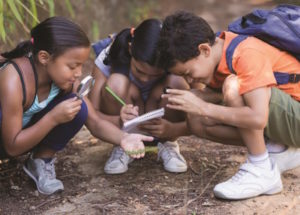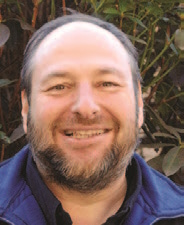Summer Camp as a Growth Experience for Your Child
Attention Magazine February 2023
 The school year comes to a close and you want to make sure your child with ADHD has an opportunity this summer to grow, have fun, and develop some important coping skills. If only there was a way to meet all of those needs, especially since many of these children tend to be anxious, struggle with poor social skills and emotional coping skills, perseverate on things they are interested in to the exclusion of everything else, and have poor organizational and executive functioning skills. Many of these children also have a difficult time making and keeping friends and have never spent the night away from home. The struggle is real. The truth is so simple, that place does exist, and it’s called summer camp!
The school year comes to a close and you want to make sure your child with ADHD has an opportunity this summer to grow, have fun, and develop some important coping skills. If only there was a way to meet all of those needs, especially since many of these children tend to be anxious, struggle with poor social skills and emotional coping skills, perseverate on things they are interested in to the exclusion of everything else, and have poor organizational and executive functioning skills. Many of these children also have a difficult time making and keeping friends and have never spent the night away from home. The struggle is real. The truth is so simple, that place does exist, and it’s called summer camp!
The great news is there are amazing programs that also know your child has special gifts and talents others often overlook. At summer camp, your child will be around individuals who will notice details others miss, be incredibly sensitive to the needs of your child, and establish structure and guidelines which will help your child thrive. However, you must research the right type of program that can offer this support and be prepared for your little agent of chaos.
It is common for the parent of a child with special needs to worry every day about their well-being and future. It’s what parents do, and why you search long and hard for opportunities that nurture their gifts and help them overcome their challenges. The school year is often fraught with experiences that aren’t exactly designed to nurture those strengths or help your child overcome their daily struggles. The summer, on the other hand, can be an incredible opportunity for the kind of growth and learning you’re hoping for. Summer camp might be the perfect place to start.
For the summer and beyond
Camps are designed to nurture independence, provide experiences that tap into the creative energy your children have, to learn to problem-solve and overcome obstacles. Furthermore, when you decide to send your child to a camp that truly understands this population and is designed to serve children diagnosed with ADHD, you get the additional peace of mind that growth is happening while you are getting some rest as well. That is no small thing.
As a parent of two of these dynamic young children, I have always benefitted from small breaks that allowed both the parents and the children to get some much-needed respite from one another. Given the time and effort you are putting in around the clock to help your child be their best self, you do deserve a break, but the real reason has more to do with your child’s best interest than with yours.
 The difference between good and great camps can be measured by how the skills learned at camp will transfer back to home and school. At SOAR, for example, students will climb a cliff, and then during reflective discussions look at the link between skills used during the climb and similar skills needed to navigate friendships. For instance, the safety rope attached to a climber is a great representation of the trust relationship between the child and the people who support them. Therefore, we take extra care to be careful with ropes, as we should with those relationships.
The difference between good and great camps can be measured by how the skills learned at camp will transfer back to home and school. At SOAR, for example, students will climb a cliff, and then during reflective discussions look at the link between skills used during the climb and similar skills needed to navigate friendships. For instance, the safety rope attached to a climber is a great representation of the trust relationship between the child and the people who support them. Therefore, we take extra care to be careful with ropes, as we should with those relationships.
Along with developing important social relationships, summer camp is a wonderful opportunity to nurture leadership, develop communication skills, and explore new areas of interest. In addition to fostering leadership, a summer camp experience can also give young people a chance to participate in new activities. Possibilities include exploring artistic endeavors, climbing and hiking, water sports, adventure sports, computer programming, and travel.
Summer camp also provides an immersive environment that allows your child to grow in a holistic way. Everyone is working toward the same goal—to be the best version of themselves they can be. Since everyone is on the same page, friendships are forged and social skills are sharpened. Campers learn right away that they are part of a team, a partnership, and everyone’s success depends on their collaboration and participation in the group.
Consider your child’s readiness and needs
 Your first order of business is to determine if your child is ready for camp. Most children are ready for day camp at the age of six, and overnight camp at the age of eight. Some children will need a camp that understands the specific nature of their needs, while others may be able to attend a camp without that focus.
Your first order of business is to determine if your child is ready for camp. Most children are ready for day camp at the age of six, and overnight camp at the age of eight. Some children will need a camp that understands the specific nature of their needs, while others may be able to attend a camp without that focus.
You should also consider if you want to have your child continue academic tutoring. Some children desperately need a break from anything academic, while others will benefit by using the summer to get a head start on the academic expectations for the upcoming school year.
Use this quick survey to help guide you in determining what kind of program you’re looking for:
| Activities | Life Skill Development | Camp Structure |
| Sports | Social skills | Overnight |
| Outdoor adventure | Organizational skills | Coed |
| Traditional camp | Problem-solving skills | Low camper/staff ratio |
| Travel | Individualized goals | Highly structured |
| Academics | Behavior management | Accredited |
| Arts and music | Leadership training | Understand ADHD |
Once you determine your criteria, you can start to look for camps that will meet your needs. Any summer camp should strive to meet the individual needs of a camper. Some children love being a part of a team, while others simply tolerate the group setting as one of the requirements to participate in a program.
Consider having your child participate in the choosing of a camp. Encourage them to spend time on the camp’s website to familiarize themselves with the faces and places. If a child is experiencing any anxiety about going away to camp, encourage them to speak with a former student or a camp director.
Once the choice is made
Once you have chosen a camp, it is time to start preparing. This transition can be difficult, and the more excitement you help generate the more enthusiasm that will transfer to your child. If you can visit the program prior to the summer, this preview can often ease some anxiety.
It can also be helpful to have your child help prepare items for camp and label everything. If you are going to shop for new items or gear, make sure it is an event for your child. If your child is especially anxious about this upcoming adventure, ask someone from the camp to call your child and help get them excited. Please remember that camp isn’t just a way to fill time in the summer, it is a wonderfully unique opportunity to help children develop their potential, nurture their spirit, and provide a platform to launch their development. Perhaps the greatest compliment I have ever been given came from a camper who simply stated “At SOAR, I get to be the person I will someday become.”
When you find the right camp for your child, the result can be increased self-esteem, a newfound sense of independence, and a magical place where children get to be the person they will someday become.
Questions to Ask Prospective Camps
As you interview programs, make sure you get answers to the following questions.
What is the staff-to-student ratio?
Most children diagnosed with ADHD benefit from smaller group settings and lower staff-to-camper ratios. These lower ratios allow for more individual attention to help children flourish.
Do the staff receive special training to work with children living with learning and attention challenges?
Discover what their staff criteria are, the age of the counselors, and the background of typical camp counselors. You will also want to know how long their staff training is.
How do you handle medications?
Camp staff should receive training on all aspects of medication administration, including information about the common types taken by youth with ADHD, their purpose and contraindications, and a standard protocol for administering the medication.
How do you manage behavior?
Be sure the camp is grounded in a philosophy that is supportive of the developmental needs of your child. How do they handle discipline, emotional coping, organizational development, and peer relationships? Does the camp hold a philosophy that will support your child’s ultimate success? Provide a scenario you might see playing out with your child and gauge your comfort level with how they might handle them. This insight will give you a real feel for the placement you’re looking into.
How do you handle technology?
If you want your child to unplug and reset, this is a particularly important question to ask. As technology has become intertwined with the way our children perceive the world, having them get a break from that may be important to you.
How will my child benefit?
The most important ingredient to making this decision lies in your hopes and expectations for the experience. While no camp can offer a guarantee, your child should leave camp with new strategies and techniques to help them take on the next school year. Skills to promote positive peer relationships, manage frustration, exercise leadership, and communicate their needs more effectively are common expectations. Find out how the camp will help your child transfer skills practiced in the program to the home and school environment.
Are you accredited?
Camp programs should be accredited. The most common well-known accreditation is from the American Camping Association, https://www.acacamps.org/. Furthermore, ask for a list of references and contact some of the families on the list to get a sense of what you may expect.
Will I get a report?
Does the camp send home a report about your child’s experience? This type of documentation can be an incredible way to learn more about what your child accomplished at camp and can also be used as a tool to share with other professionals working with your child.


 John Willson is the executive director for SOAR, a nationally recognized and accredited summer program serving youth with learning and attention challenges. Visit
John Willson is the executive director for SOAR, a nationally recognized and accredited summer program serving youth with learning and attention challenges. Visit